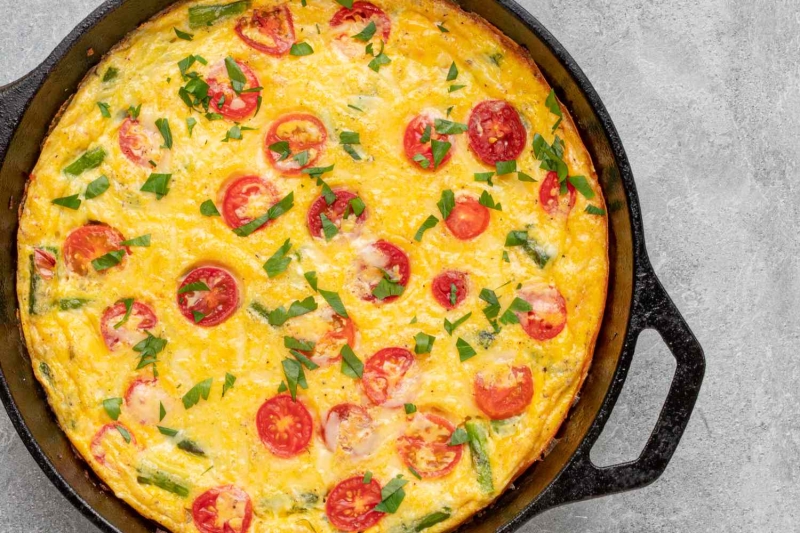With Variations
Prep: 12 mins
Cook: 17 mins
Total: 29 mins
Servings: 8 servings
Yield: 8 slices
A frittata is an excellent egg dish—similar to a quiche without the crust (which makes it gluten-free)—that isn’t just for breakfast or brunch. The frittata makes a satisfying lunch or dinner dish as well. And you don’t have to dirty a lot of dishes and utensils to make a frittata. All you need are a few measuring utensils, a bowl and whisk for the eggs, and a 10-inch oven-safe cast-iron or nonstick skillet.
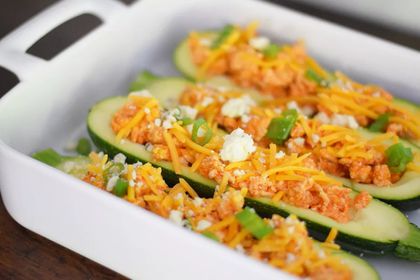
A classic frittata is infinitely adaptable and bakes in as little as 8 minutes, so it’s important to sauté any vegetables and meat before adding the eggs. This one includes asparagus, ham, Gruyére cheese, and a few cherry tomatoes. Still, you could just as easily swap out the asparagus for broccoli or Broccolini or omit the ham and add another vegetable, such as thawed frozen peas or sautéed mushrooms. Or use cheddar cheese in place of the Gruyére. Be sure to check out the variations for some alternative combinations.
Serve a frittata with a salad, sliced fresh fruit, or fresh vegetables, or serve it with a cup or bowl of soup for a filling, well-balanced lunch or dinner.
“Frittatas are perfect at any time of day. This recipe is great and easy to follow and I love all the variation ideas. From now on I will use this recipe’s base ingredients and method for all my frittatas and just change up the add-ins, using whatever vegetables and cheese I have in my fridge.” —Carrie Parente
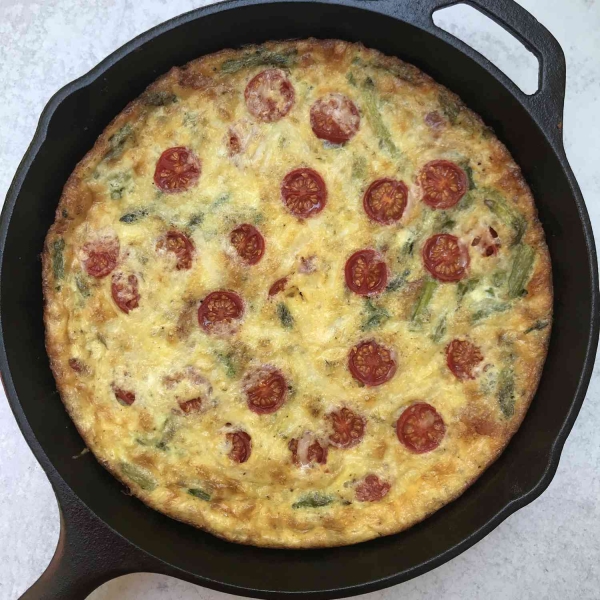
A Note From Our Recipe Tester
Ingredients
-
8 large eggs
-
1/4 cup milk
-
1/4 teaspoon salt
-
1/8 teaspoon ground black pepper
-
1 pinch freshly grated nutmeg
-
1 tablespoon olive oil
-
1/3 cup minced shallot
-
1 1/2 cups chopped asparagus
-
1/2 cup diced ham
-
1/2 cup sliced cherry tomatoes
-
4 ounces shredded Gruyére cheese, divided
-
1 tablespoon chopped parsley
Steps to Make It
-
Gather the ingredients.
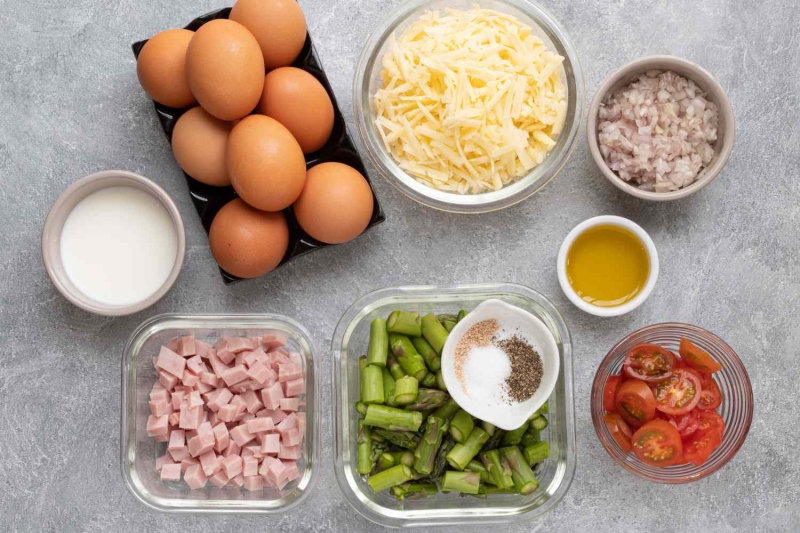
-
Position a rack in the middle of the oven, and heat to 400 F. Meanwhile, in a large bowl, combine the eggs, milk, salt, pepper, and nutmeg (if using); whisk until well blended and set aside.
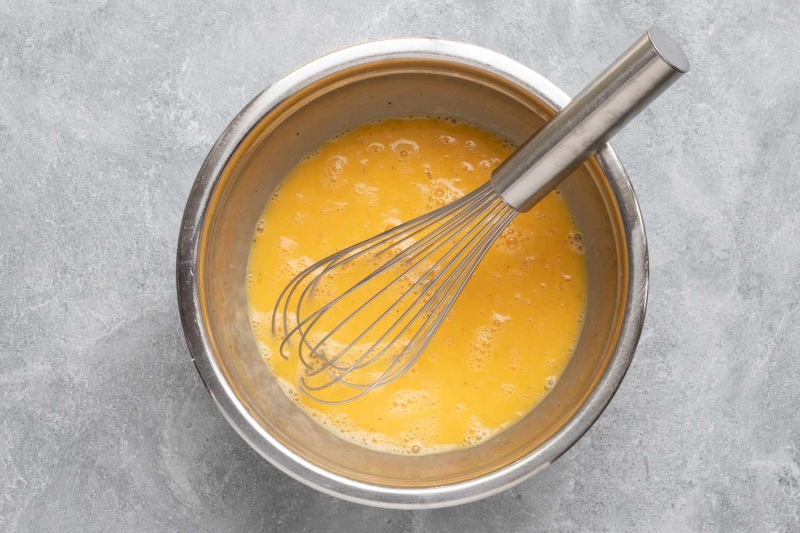
-
Heat the olive oil in a 10-inch oven-safe skillet over medium heat. Add the shallot, asparagus, and ham. Cook, stirring, for about 4 to 6 minutes, or until the asparagus is bright green and the shallots are translucent.
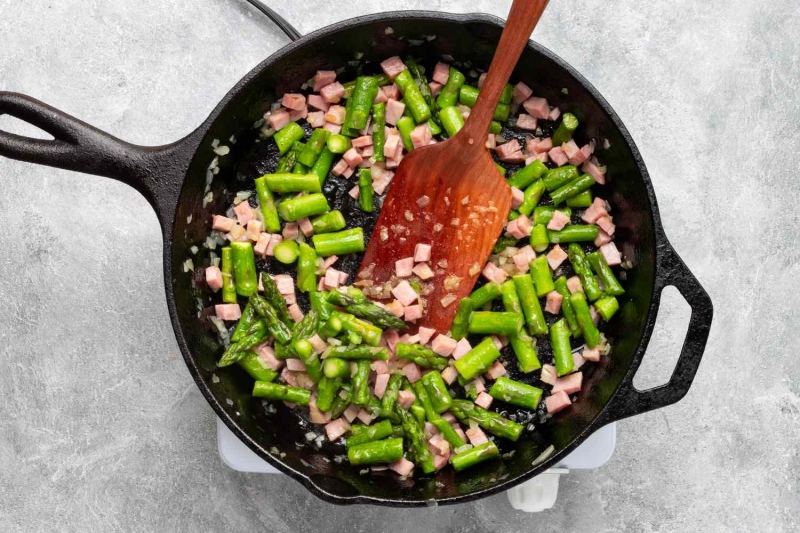
-
Pour the egg mixture into the skillet and add about 3/4 of the cheese; stir gently to distribute the ingredients. Top with the sliced cherry tomatoes and the remaining cheese.
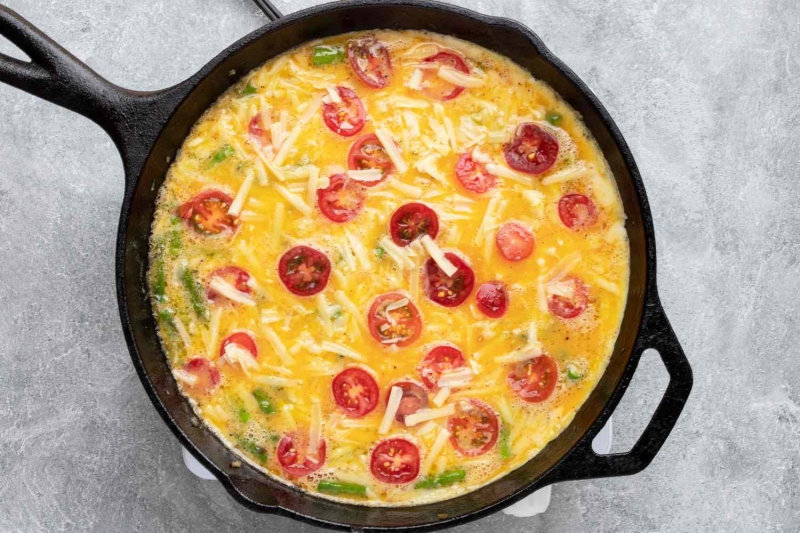
-
Continue to cook over medium heat for about 1 minute, or until the outer edge looks slightly set. Transfer the frittata to the oven and bake for about 8 to 10 minutes, until the eggs are puffed and set. To check for doneness, make a small cut in the center with a knife. If liquid egg mixture flows into the cut, it needs another minute or two.
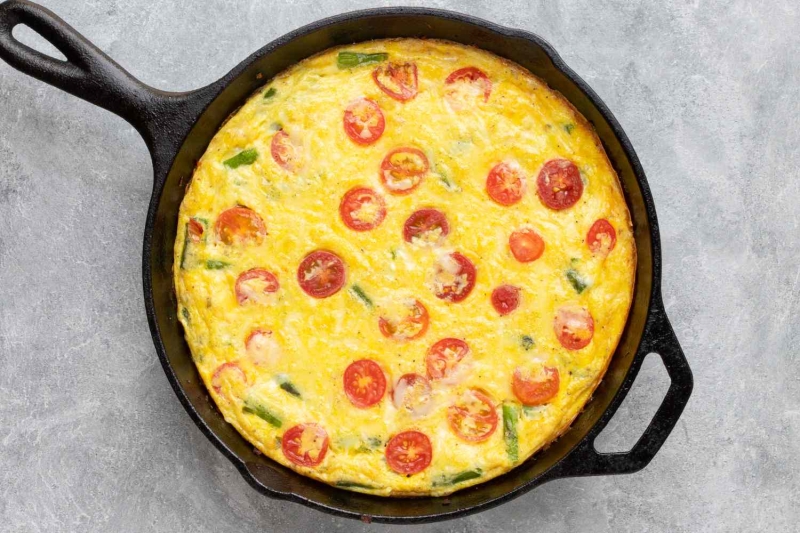
-
Remove the pan to a rack and let it cool for 5 minutes before slicing and serving. To slice, run a thin spatula or knife around the edge of the pan to loosen the frittata. Slice and garnish with fresh chopped parsley, if desired.
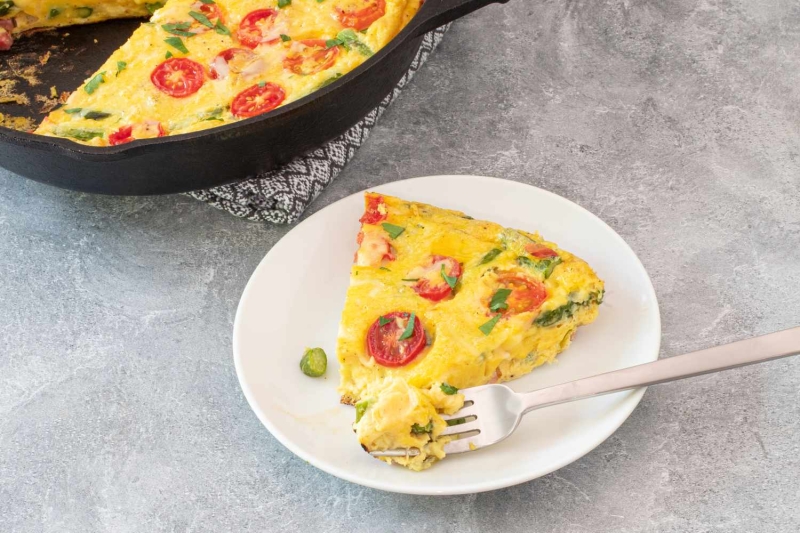
Tips
- To streamline a breakfast frittata, chop the vegetables the night before and refrigerate them in separate containers.
- If your frittata looks a little plain, gussy it up with a dollop of sour cream, some fresh chopped tomatoes, fresh herbs, salsa, or a drizzle of homemade pesto.
- If you like a browned top, place the baked frittata under the broiler for a minute or two, just until browned.
Recipe Variations
Here are some alternative combinations using the basic seasoned egg mixture:
- Broccoli, Cheddar, and Bacon Frittata: Sauté 1/3 cup of minced shallots and 1 clove of minced garlic in 1 tablespoon of olive oil until the shallot is softened, about 4 minutes. Add 1 1/2 cups of chopped broccoli florets and continue to cook for about 1 minute, until just tender. Add the egg mixture and 4 ounces of shredded cheddar cheese, and about 1/4 to 1/2 cup of crumbled cooked bacon.
- Italian Sausage, Mushroom, and Parmesan Cheese Frittata: Brown 8 to 12 ounces of bulk Italian sausage in the skillet until fully cooked. Remove the sausage from the pan and drain well. In the same pan, sauté 1/3 cup of chopped shallots or onions with 6 to 8 ounces of sliced mushrooms for about 5 to 7 minutes, until the mushrooms have released their liquid and the liquid has evaporated. Add the drained cooked sausage back to the pan. Pour the egg mixture over the sausage and mushroom mixture, and then add 1/4 cup of Parmesan cheese along with about 1/4 cup of fresh chopped basil. Top with a thinly sliced tomato or several strips of roasted red bell pepper, and then sprinkle with another tablespoon of Parmesan cheese.
- Spinach and Feta Frittata: Sauté 1/2 cup of diced onion in 1 tablespoon of olive oil until translucent, about 5 minutes. Add 4 to 5 ounces of baby spinach to the pan and continue to cook for about 3 minutes—until the spinach is wilted and liquids have evaporated. Add 1 tablespoon of chopped fresh dill to the egg mixture. Pour the egg mixture over spinach and onions and sprinkle with 1 cup of drained and crumbled feta cheese.
- Vegetarian-Friendly Spring Vegetable Frittata: Omit the ham and add 1/2 cup of thawed frozen peas to the frittata when you add the cheese.
How to Store and Reheat
- Refrigerate leftover frittata in a covered shallow container within 2 hours and eat within 3 days.
- To reheat leftover frittata, preheat the oven to 350 F and place the frittata slices in an oven-safe dish or pan. Cover the pan tightly with foil and heat the frittata for about 20 minutes, or until it registers 165 F in the center of the thickest slice.
What is the Difference Between an Omelet and a Frittata?
Omelets and frittatas have some similarities—both are made with eggs and various ingredients, which may or may not include vegetables, meats, and cheese. A frittata might serve one or several people and is started in an open skillet on the stovetop and finished in the oven. A frittata may be served hot or at room temperature. An omelet is typically cooked for one in a skillet on the stovetop and is served hot.
Do You Flip a Frittata?
You don't have to flip a frittata—you can finish it in the oven and brown it under the broiler if you like. Flipping does have its advantages—lighter texture and more uniform browning—but it can be challenging if you don't have a specialty pan.
| Nutrition Facts | |
|---|---|
| Servings: 8 | |
| Amount per serving | |
| Calories | 174 |
| % Daily Value* | |
| Total Fat 12g | 15% |
| Saturated Fat 5g | 23% |
| Cholesterol 208mg | 69% |
| Sodium 330mg | 14% |
| Total Carbohydrate 4g | 1% |
| Dietary Fiber 1g | 4% |
| Total Sugars 2g | |
| Protein 14g | |
| Vitamin C 4mg | 22% |
| Calcium 192mg | 15% |
| Iron 1mg | 8% |
| Potassium 240mg | 5% |
| *The % Daily Value (DV) tells you how much a nutrient in a food serving contributes to a daily diet. 2,000 calories a day is used for general nutrition advice. | |
